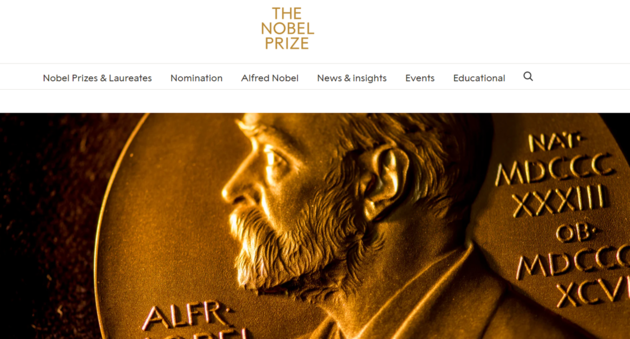
Photo/Nobel Prize website
During the “double festival” period in China, the winners of the 2023 Nobel Prize in various categories have been announced one after another. So far, the winners of the prizes in physiology or medicine, chemistry, physics and literature have been revealed.
However, while the outside world is widely concerned about the reasons for the scientific awards, few people have noticed that the road to the Nobel Prize is becoming longer and longer - nearly half of the winners have waited an average of nearly 20 years from making a discovery or achievement worthy of the Nobel Prize to actually receiving it.
Santo Fortunato, a computational social scientist at Indiana University Bloomington, published a paper in 2014 analyzing the papers of Nobel laureates since the establishment of the Nobel Prize in 1901. His research results show that over the years, the time gap between the Nobel Prize winners’ award-winning research and their formal receipt of the Nobel Prize has been slowly increasing, and the award-winning time gap since the 1960s has been longer than in the first few years of the establishment of the Nobel Prize.
Yian Yin, a computational social scientist at Cornell University in New York, said there are many possible reasons for this trend. He said it may be because the total number of scientific breakthroughs each year is increasing, so the number of Nobel Prizes cannot keep up with the number of scientists who deserve recognition. There is also a situation where some achievements that Yian Yin described as “sleeping beauties” are often not realized until years or decades later. In addition, the important research or discoveries that change the paradigm of their fields in the scientific community have decreased, which may also lead to more attention from the Nobel Committee to those scientific breakthroughs that were announced in the past few years or even decades.
“This rule must be abolished at some point,” Fortunato added. “Reconsidering posthumous awards will allow more scientists’ work to receive due recognition.”


 川公网安备 51019002001991号
川公网安备 51019002001991号





